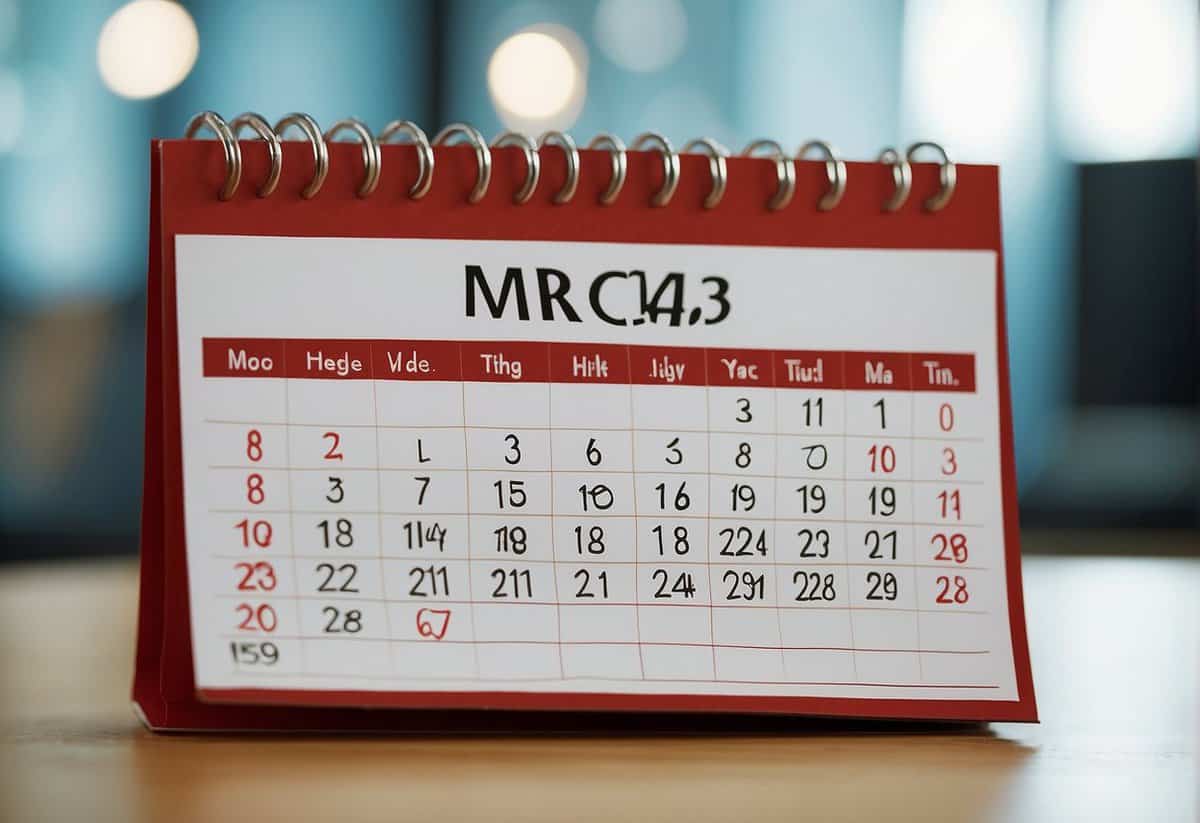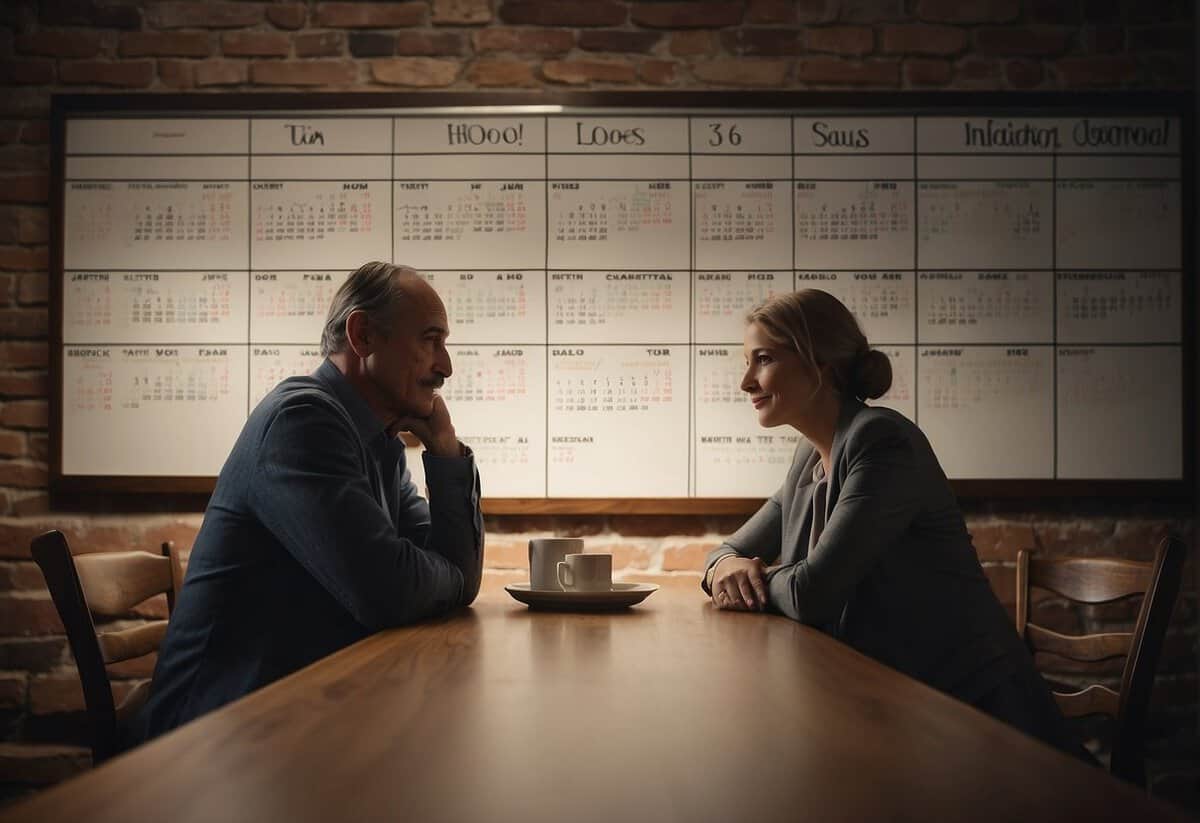How Long Do You Date Before Second Marriage? – Timing the Next Chapter
Deciding to remarry is a significant step that involves much more than just the desire to rekindle romance. It’s common to wonder how long you should date before entering a second marriage, especially when the landscape of relationships and priorities may have shifted since your first. The time needed to build a strong foundation varies for everyone, but it’s important to ensure that you’ve thoroughly gotten to know your partner, your individual expectations are clear, and that you’re both committed to bringing happiness into each other’s lives.

When it comes to blending families and experiences, dating before a second marriage also requires a unique approach to ensure stability and sustained health of the relationship. It’s not just about the duration of dating, but also about understanding what makes a second marriage different and working towards preparing for a remarriage that brings out the best in both of you.
Key Takeaways
- Dating before a second marriage is essential for understanding your partner and aligning expectations.
- Preparing for a successful remarriage requires thoughtful consideration of family dynamics.
- Commitment to ongoing relationship health is key to long-term happiness in second marriages.
Understanding Second Marriages

Entering into a second marriage often comes with a mix of hope and hesitation. It’s a time where you can harness the wisdom gained from past experiences to build a stronger and more fulfilling partnership.
Embracing New Beginnings
Embarking on a second marriage is an opportunity for a fresh start. You’ve likely learned a great deal about yourself and relationships in general from your first marriage. It’s important to approach this new chapter with a sense of optimism. Statistics from the Journal of Family Issues suggest that while second marriages can be complex, they also offer a chance to apply new insights and strategies.
Learning from the Past
Your previous relationship likely taught you valuable lessons about love, conflict, and compromise. Being mindful of past mistakes is crucial to preventing history from repeating itself. Remember, the divorce rate for second marriages is higher than for first marriages, and this underscores the importance of reflecting on what went wrong and what went right the first time around. Remarriage is your chance to put all that you’ve learned into practice and to forge ahead with resilience and understanding.
Preparing for Remarriage

As you set the course for a new chapter in your life, taking important steps before saying “I do” again can build a solid foundation for your second marriage. It’s essential to understand and embrace processes like premarital counseling and to consider the dynamics of engagement and cohabitation.
Importance of Premarital Counseling
Premarital counseling can be instrumental in your preparations for remarriage. By engaging in counseling with a therapist, you’re allowing yourself and your future spouse the opportunity to discuss important matters such as trust, communication, and vulnerability. This is a time to ensure the compatibility is concrete and any lingering issues from past relationships are addressed. A variety of topics should be covered:
- Open communication: Learning to express yourself clearly and listen actively.
- Respect: How to show it and what it means to both of you.
- Understanding past relationships: Reflecting on what’s been learned.
- Financial planning: To prevent future disputes.
Engagement and Cohabitation Considerations
Before your second marriage, you might find yourself contemplating engagement and cohabitation.
- Engagement: Treat this period as a meaningful time to deepen your relationship, not just plan a wedding.
- Cohabitation: Living together pre-marriage can help you learn about habits and lifestyles, but it’s important to maintain respect and set boundaries early on.
By making space for these preparations, you’re not just planning a wedding but strengthening a lifelong partnership.
Blending Families

When you decide to enter a second marriage, blending families becomes a central part of the journey. It’s crucial to understand that your stepchildren and new family dynamics will present unique challenges and will require mutual respect and patience to foster a cohesive family environment.
Challenges with Children
Your stepchildren may have a range of emotions regarding the new family structure. It’s important for you to acknowledge these feelings and work together to address them.
- Emotional Adjustments: They may feel uncertain and may struggle with loyalty conflicts between biological parents and stepparents.
- Establishing Boundaries: Be clear about the rules but also be open to discussions. It’s a balance between maintaining order and providing support.
Family Dynamics and Respect
Blending families requires everyone to adapt to new roles and relationships.
- Defining New Roles: As a stepparent, you’ll need to find your place in the family without trying to replace a biological parent.
- Cultivating Respect: Build respect with each family member, understanding that each relationship will take time to develop. Respect is the foundation of a successful blended family.
Sustaining a Healthy Relationship

Embarking on a second marriage means stepping into a new future with determination and clarity. A healthy relationship thrives on commitment and satisfaction, achieved through continuous effort. The foundation for this is open communication and deep-rooted trust, both of which help couples maintain their connection beyond the honeymoon phase.
Maintaining Open and Honest Communication
Your ability to express your thoughts and feelings openly is vital. Make it a habit to discuss your dreams, fears, and daily experiences. Regularly practicing this:
- Ensures that both partners stay connected to each other’s lives.
- Prevents misunderstandings that can occur when thoughts or feelings are kept hidden.
Be sure to listen actively, validating your partner’s feelings without judgment. This fosters a safe space for both of you to be honest.
Building Trust and Mutual Respect
Trust is built with time and consistency, and it lays the groundwork for a strong future together. Here are ways to build and maintain trust:
- Follow through on promises: Your actions should match your words.
- Show respect in all interactions: Even during disagreements, treat each other’s opinions and feelings with care.
Mutual respect ensures you both feel valued and understood, increasing the satisfaction within the relationship. It’s about supporting one another’s individuality while growing together.
Frequently Asked Questions

Navigating the dating landscape before considering a second marriage varies greatly from person to person. Understanding these variations according to different age groups can be quite helpful as you create your own path forward.
What are the considerations for dating before getting engaged again in your 30s?
In your 30s, it’s important to balance dating with life’s other responsibilities, such as career or child-rearing if you have kids from a previous marriage. Relationship experts suggest dating for at least 1 year before committing again to ensure you truly know your partner.
What’s the average time people date before remarrying in their 40s?
Individuals in their 40s may date for several years before remarrying. According to Psychology Today, dating for three or more years could significantly decrease the likelihood of divorce.
How soon do individuals typically remarry after their divorce?
The timeframe for remarrying after a divorce can vary widely, but The Knot reports an average relationship length before remarriage to be around two or more years for many couples.
Are there any trends in the duration of dating before a second engagement in your 50s?
Those in their 50s may take more time dating before a second engagement. At this age, individuals are often looking for companionship and may prioritize compatibility and common interests over a speedy engagement.
What factors influence the length of dating before a second marriage in your 60s?
In your 60s, factors like retirement, independence, and the blending of established families can influence the length of dating before a second marriage. Many find that having shared values and life goals becomes increasingly important.
What is the typical relationship timeline before a second marriage for those in their 20s?
For those in their 20s considering a second marriage, the timeline is often shorter. As this age group may be more adaptable and less likely to have complex financial or familial obligations, moving from dating to marriage could happen within a shorter frame of time.
